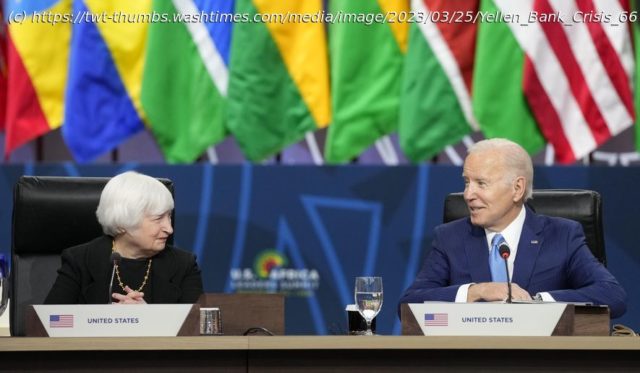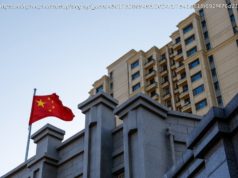Array
The Biden administration is pushing a revamp of lagging U.S. relations with Africa, launching a major charm offensive over the year that has included a major summit of continental leaders in Washington, a parade of high-level diplomatic visits to resource-rich African nations and promises of vast private investment to come.
But analysts say the White House has thus far barely moved the needle when it comes to countering the trade and economic inroads and increasingly robust political influence that China has established on the continent over the past decade.
Beijing is currently out-trading and out-investing the U.S. across Africa by nearly 400%, putting the Chinese Communist Party in the driver’s seat of an increasingly Cold War-style competition for friends and influence on the world’s fastest-growing continent, one where many of the world’s largest reserves of precious metal and other natural resources are situated.
While polling shows most Africans favor U.S.-style democracy over Chinese autocracy, few dispute Beijing has established a massive foothold by beating Washington at the infrastructure development game and outstripping the U.S. as Africa’s top overall foreign direct investment and trade partner.
“They are dwarfing us when it comes to commercial investment and trade,” said Joseph Sany, who heads the Africa Center at the United States Institute of Peace. Beijing may not employ the Western playbook, but for many investment-starved African leaders, that’s a secondary consideration.
“Even if China’s investments involve opacity and exploitation, their increased commercial engagement has forced Washington to shift its priorities,” Mr. Sany said in an interview, adding that “the Biden administration is faced with the challenge of flipping the script of U.S. policy.”
Analysts say many Africans see the U.S. tied down by a war in Ukraine and determined to challenge China for dominance in East Asia. The developing countries of Africa, they conclude, can hardly be a top priority for U.S. administrations, Democratic and Republican alike.
Said Mr. Sany, “Instead of seeing Africa as the weakest link in a network of American allies and partners around the world, and shaping U.S. policy purely around aid, we need to start leading with trade and investment. But we have a lot of catch-up to do compared to China — a lot of catch-up.”
While he said President Biden’s overall messaging on Africa had struck the right tone, Mr. Sany warned that U.S. programs for generating the kind of private investment that can truly compete with China on the continent need major streamlining and attention — soon.
It’s a reality the Trump administration sought to address back in 2018 by pushing market-focused reforms within the slow-moving U.S. Agency for International Development (USAID) to counter China’s massive “Belt and Road” foreign investments around the world. Some 52 countries have at least nominally signed up for Beijing’s massive infrastructure financing program, which is involved in developing ports in Djibouti and Algeria, rail lines in Kenya, Tanzania and Nigeria, and dams and solar-power farms in Sudan, among other projects.
Mr. Trump signed a law creating the U.S. International Development Finance Corporation (DFC) that merged key private capital functions of USAID, essentially doubling Washington’s fund for insuring private foreign investments by American companies to the tune of about $60 billion. The Trump administration also created the “Prosper Africa” initiative within USAID with the aim of increasing two-way trade deals with the continent.
Questions now swirl around the extent to which the Biden administration has picked up and run with the trade-focused momentum Mr. Trump sought to create.
In January, Mr. Biden dispatched Treasury Secretary Janet Yellen on a 10-day visit to Africa. Administration officials said the trip aimed to promote the potential for increased economic connectivity with the United States.






